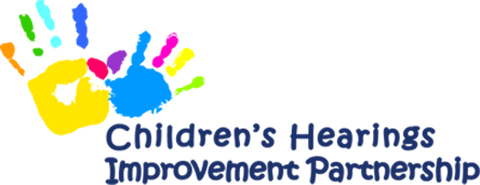Role of the Reporter
The Children’s Reporter’s primary function is to receive referrals for children and young people who are believed to require compulsory measures of supervision. The Reporter then makes a decision on whether the child/young person needs to be referred to a Children’s Hearing.
The role of the Reporter is to:
-
Receive referrals for children and young people who are believed to require compulsory measures of supervision.
-
Draft a statement of grounds and decide whether the child or young person needs to be referred to a Hearing.
-
Provide administration to Children’s Hearings and keep a record of proceedings at Hearings.
-
Maintain the independence of Hearings and support fair process.
-
Conduct Children’s Hearings court proceedings.
The Reporter’s primary function is to receive referrals for children and young people who are believed to require compulsory measures of supervision. The Reporter then decides whether the child or young person should be referred to a Children’s Hearing. The majority of referrals to the Children’s Reporter come from the police and social work, however anyone can make a referral to the Reporter. Guidance is available aimed at giving practical advice to any professional who is considering making a referral to the Reporter.
Investigation/Evidence
When a referral has been received, the Reporter has a legal duty to carry out an investigation to establish what evidence appears to exist, which may prove that one or more of the statement of grounds is established.
On non-offence (care and protection) grounds, the evidential standard is the civil standard of balance of probabilities. For offence grounds, the Children’s Hearings System operates on the same evidential standard as the criminal justice system (beyond reasonable doubt) therefore, if there is insufficient evidence, the matter cannot be taken further by the Reporter.
Decision making
Every child and young person is dealt with on an individual basis, and the Reporter’s decision will depend on the circumstances of the case and the information available. The Reporter will examine the child or young person’s background, taking into account their family circumstances and any previous behaviour or offences.
Following the investigation, the Reporter can make one of a number of decisions, including referring a child or young person to a Hearing. Where there is no requirement for compulsory measures of supervision, children and young people can be dealt with by a variety of options, including: restorative justice, voluntary measures such as tailored programmes to tackle their behaviour. These are all available options depending on the individual child or young person, their needs and circumstances.
Children and young people can be referred to services like this either on a compulsory basis following a Children’s Hearing, or on a voluntary basis (without proceeding to a Hearing) with the support of their family/guardians and usually social work services.
Statement of Grounds
If the Reporter decides that a child or young person needs to go to a Hearing, the Reporter draws up a statement of grounds. A statement of grounds can include if the child or young person:
- Suffers from lack of parental care.
- Is falling into bad associations or is exposed to moral danger.
- Is beyond the control of their parent/carer (relevant person).
- The child, or another child in the same household, has been the victim of an offence such as sexual abuse, assault or neglect.
- Is a member of the same household as a person who has offended against a child or young person.
- Has failed to attend school without reasonable excuse.
- Has committed an offence.
- Has abused solvents, or misused drugs or alcohol.
Children’s Hearing
It is only through the Reporter that children and young people are referred to a Hearing. A child or young person will only be referred to a Children’s Hearing if:
- The Reporter is satisfied that one or more grounds for referral exists (stated in section 67 of the Children’s Hearings (Scotland) Act 2011) and,
- There is a need for compulsory measures of supervision (to either protect the child or young person, and/or address their behaviour).
It is the responsibility of the Reporter to notify children, young people and families and any relevant persons of Hearings, and to provide them with all the relevant paper work. Once a child or young person is referred to a Hearing, the role of the Reporter is to keep a report of the proceedings and support fair process without undermining the decision making function of the Hearing.
The Reporter does not provide legal advice to the Hearing or to children, young people and families.
Sheriff Court
Where a child or young person is referred to a Children’s Hearing and the statement of grounds are not accepted, or the child or young person does not understand due to their age or ability, the Hearing can direct the Reporter to make an application to the Sheriff to decide whether the grounds are established. The Reporter will conduct the case in court, including leading evidence before the Sheriff. If the Sheriff is satisfied that the grounds are correct, the Reporter will arrange another Hearing to decide whether the child or young person requires compulsory measures.
The Reporter is also responsible for conducting any appeals against Children’s Hearing decisions in court.
